Critical Attention and Figures of Control: On Reading Networked, Software-based Social Systems with a Protective Eye
Søren Bro Pold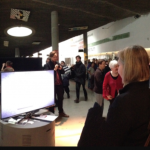
Søren Pold takes up the task to deconstruct the present cultural moment when the effects and ways of operating of social systems, as discussed by Johanna Drucker in her recent book, are becoming central interfaces to a broad range of lived reality. Pold’s offers a valuable effort at understanding the complex mechanisms of production of such systems via investigation of rhetorical and software aspects of networked media. With the focus on artistic research installation, The Oracle of Selphie by Jakob Fredslund and Malthe Stauning Erslev in collaboration with Pold and coupled with his own installation platform The Poetry Machine, Pold interrogates to what extent Drucker’s arguments allows for a critical approach to reading patterns in social media. Doing so, he simultaneously offers models of distracted reading grounded in the propositions by Michel de Certeau, Siegfried Kracauer, Walter Benjamin, and Olga Goriunova, demonstrating that “lurking” and other forms of inattentive reading can be exploited and turned into profit in the age of the platform capitalism. Such an observation calls for further research that would better grasp the nature of networked reading practices enabled (and more often forced) by our contemporary social media platforms.
A Review of Stephanie Strickland’s Ringing the Changes
Sarah Whitcomb Laiola
Sarah Whitcomb Laiola insightfully analyzes Stephanie Strickland’s recent poetry book, looking into how Strickland continues the tradition of poetic text generation, engaging at the same with material constraints resulting from 17th century pattern-ringing. The practice consists of competing teams ringing church bells based on highly complex mathematical patterns. Building on these, the poet and her team created elaborate and complex algorithms that generate the poetry woven out of textual data harvested from writings of Sha Xin Wei, Simone Weil, Hito Steyerl, and Yuk Hui among others. Written with Python code, the work demonstrates the powerful “poetics of juxtaposition”, where the list of names of Black men and women subjected to state-sanctioned violence strongly resonates throughout the whole texts.
Being the Asterisk: Noah Wardrip-Fruin and the Future of Game Studies
Stuart Moulthrop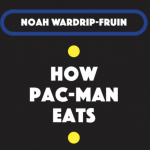
What is the connection between how computer games work and what they mean? What do we do with games and what do they do to us? In its exploration of these questions, Stuart Moulthrop sees Noah Wardrip-Fruin’s How Pac-Man Eats (MIT Press, 2020) as helping to urge game studies in a productive new direction: one that critically traces interactions between games and the broader culture in which they're embedded. More specifically, he observes some of the ways Wardrip-Fruin’s work links “technē to social purpose”, and thereby “re-engages questions of value and justice”. This, he contends, is part of what distinguishes this author—"a scientist who is also a socially aware literary writer", as he approvingly puts it—from many of the “anatomists” with whom he founded this developing field.
Ethics and Aesthetics of (Digital) Space: Institutions, Borders, and Transnational Frameworks of Digital Creative Practice in Ireland
Anne Karhio
Discussing the works of three digital creative practitioners working in Ireland, Anne Karhio situates Ireland itself as a case study for demonstrating the ways in which electronic literature as a seemingly global and transnational practice can confront the complexly situated realities of everyday embodiment, technological materiality, and politicization of national borders. She thus recommends electronic literature be seen as more crucial part of digital arts and humanities research in Ireland and elsewhere.
Building STEAM for DH and Electronic Literature: An Educational Approach to Nurturing the STEAM Mindset in Higher Education
Claudia von Vacano, Evan Muzzall, Adam G. Anderson, Jonathan Reeve, Tom van Nuenen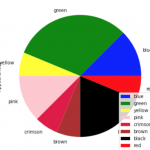
As the present gathering introduces Electronic Literature into the Digital Humanities, the DH at Berkeley Program brings the Arts/Humanities into Science, Technology, Engineering and Mathematics: turning STEM into STEAM.
A Life in Books: An Interview with Author-Designer Warren Lehrer
Warren Lehrer, Brian Davis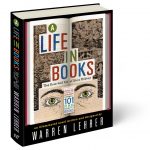
Here is the transcription of an extended conversation between multimedia artist and author Warren Lehrer and Brian Davis (a recent contemporary literature and poetics PhD grad from University of Maryland) that began in February 2020 at Lehrer’s studio in Queens, NY soon after the opening of the exhibition “Warren Lehrer: Books, Animation, Performance, Collaboration” at the Center for Book Arts in Manhattan. They discuss Lehrer’s recent book, Five Oceans in a Teaspoon (2019), a collection of visual poems written by Dennis J Bernstein, visualized by Lehrer, as well as Lehrer’s long running commitments to visual literature and collaborative art going back to the early 1980s. In addition to discussing several of Lehrer’s bookish projects, including his novel A Life in Books (2013), they discuss the different writing and printing technologies Lehrer has worked with and in over the years, as well as current issues in contemporary literature studies, such as documentary aesthetics, autofiction, and satire.
Collaborative Reading Praxis
Mark C. Marino, Jeremy Douglass, Jessica Pressman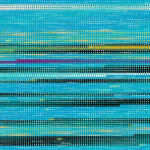
Marino, Douglass, and Pressman describe their award-winning collaborative project, Reading Project: A Collaborative Analysis of William Poundstone’s Project for Tachistoscope {Bottomless Pit} (2015). Given the novelty of Poundstone’s work and its deviation from traditional forms of print-based literature, the authors break down the methods and platforms that allowed them to respond with new ways of reading—what they call “close reading (reimagined).” Indeed, their respective methods of interpreting Poundstone reminds that the field of e-literature not only brings new literary forms to our critical attention, but also necessitates that hermeneutics adapt to digital contexts as well.
Reading Project was awarded the ELO’s 2016 N. Katherine Hayles Award for Literary Criticism on Electronic Literature.
Unhelpful Tools: Reexamining the Digital Humanities through Eugenio Tisselli’s degenerative and regenerative
Justin Berner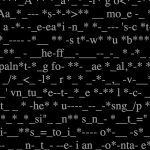
Via close readings of Eugenio Tisselli's degenerative and regenerative, ¨paired works that become progressively less comprehensible the more users interact with them," we are able to grasp the ecological costs of the time we spend online. And we can begin to recognize, with Justin Berner, a concern with permanence and ephemerality in the digital sphere that is not unique to the work of Tisselli. It is, rather, a common thematic concern throughout the history of electronic literature. The term that Berner advances for this literary countertext to the instrumentalism of the Digital Humanitiers, is digital posthumanism.
Lit Mods
Álvaro Seiça
Seiça describes modification as an art practice meant to subvert and divert from what we—as readers, spectators, and also consumers—expect from technological apparati and platforms. He extends the study of mods to “lit mods”—including art, games, and literature.
In particular, Seiça notes that the learning curve for modding has changed: where in the past, it may have taken a certain amount of user knowledge, modification may now be automated (for instance, through Instagram filters). More importantly, he asks what lit mods show us about literary practice and literary criticism. Where fast-moving content—fast-moving e-literature and e-poetry included—may defy interpretation, so analysis is strengthened by breaking down their mechanisms.
Addressing Significant Societal Challenges Through Critical Digital Media
Scott Rettberg, Roderick Coover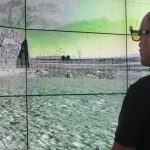
Roderick Coover and Scott Rettberg reflect on the cultural values, political debates, power structures and architectures of exploitation underlying much of contemporary digital culture. As digital artists and collaborators, they also identify aesthetic reactions that actually combat what they critique. But for this to happen, we need literary works that are themselves produced, and actively circulating within digital environments.
A portion of the essay, focused on the ToxI*City project, is adapted from an earlier discussion published in ebr: Voices from Troubled Shores: Toxi•City: a Climate Change Narrative
Digital Creativity as Critical Material Thinking: The Disruptive Potential of Electronic Literature
Alex Saum-Pascual
In this contribution to her co-edited collection, [Frame]works, Saum brings to the digital humanities both makers and theoreticians, gnosis as well as poiesis, school teachers as well as research professors.
Introduction: Electronic Literature as a Framework for the Digital Humanities
Scott Rettberg, Alex Saum-Pascual
Rettberg and Saum introduce a collection of essays, presented at the Summer 2019 [Frame]works conference at the University of California, Berkeley, that bring literary criticism and creativity (equally) to bear on the digital humanities.
Something there badly not wrong: the life and death of literary form in databases
Joseph Tabbi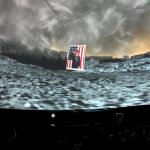
Returning to his 2010 essay, “Electronic Literature as World Literature,” Tabbi extends those arguments in light of community built scholarly databases that have since emerged and in contrast to an uncritical tracking of “views, citations, downloads and occasional shared themes” (not to mention an increased precarity of authorship, where one’s scholarly work is basically given away).
For digital practices to be literary, Tabbi argues, our selections need to circulate within various institutional, academic, curatorial, and cultural structures – each of which is devising its own set of relations to the digital. This essay aims to initiate those ongoing conversations and evaluations in the field of born digital, electronic literature. In so doing, Tabbi suggests how acts of close reading can bring scholars into closer contact with one another and also activate the databases where e-lit archives are presently stored, read, curated, and mined for verbal and perspectival patterns. (Which have been described, in broad outline as a kind of distant reading.)
Appealing to Your Better Judgement: A Call for Database Criticism
Hannah Ackermans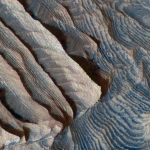
On the database itself as a cultural and textual artifact, a site where reading and interpretation combine with quantitative methods.
Gardening E-literature (or, how to effectively plant the seeds for future investigations on electronic literature)
Anna Nacher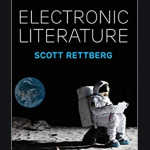
In the course of her wide ranging review of Scott Rettberg's Electronic Literature, Anna Nacher offers a glimpse into "semi-peripheral avant-gardes" that are more open than other fields of digital culture to decolonization and not restricted to the Anglophone world.